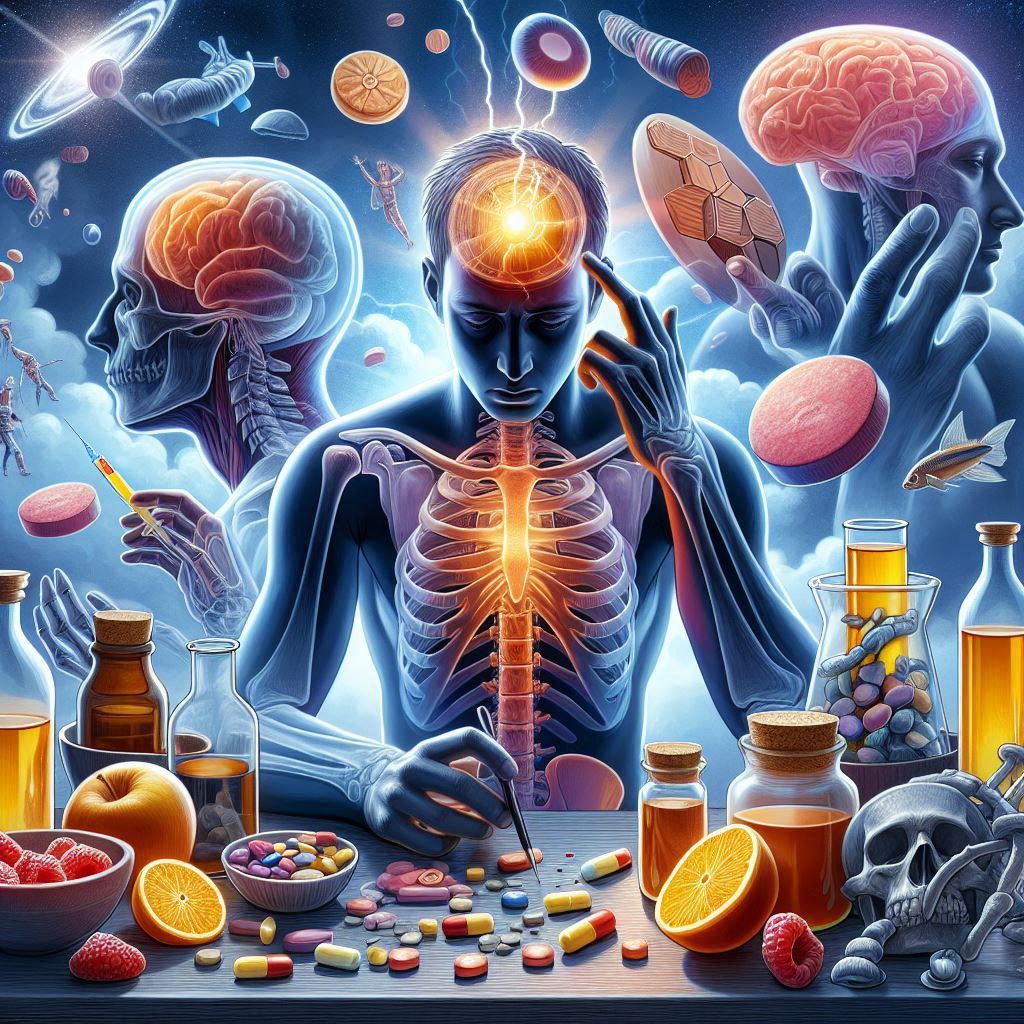Understanding Vitamin B12 Deficiency: Causes, Symptoms, and Treatment

Vitamin B12, also known as cobalamin, plays a vital role in red blood cell formation, cell metabolism, nerve function, and the production of DNA. Without adequate levels of this essential nutrient, a person can develop a vitamin B12 deficiency with potentially serious health consequences.
- What Is Vitamin B12 Deficiency?
- What Are The Common Symptoms Of Vitamin B12 Deficiency?
- What Causes Vitamin B12 Deficiency In Older Adults?
- How Is Vitamin B12 Deficiency Diagnosed?
- What Are The Complications Of Untreated Vitamin B12 Deficiency?
- How To Treat Vitamin B12 Deficiency Effectively?
- When Should You See A Doctor For Vitamin B12 Deficiency?
- Understanding Vitamin B12 Deficiency: Related Questions
What Is Vitamin B12 Deficiency?
Vitamin B12 deficiency occurs when the body lacks enough cobalamin to meet its needs. This condition can lead to hematological and neurological complications that, if left untreated, may become irreversible. The body cannot produce vitamin B12, so it must be obtained through diet or supplements.
Deficiency can result from a variety of factors including inadequate dietary intake, malabsorption, certain medical conditions, and the use of specific medications. It's particularly common in those following a strict vegan diet, as B12 is primarily found in animal products.
Understanding the complexity of this deficiency is crucial, as it can affect people differently and the symptoms can often be mistaken for those of other conditions.
What Are The Common Symptoms Of Vitamin B12 Deficiency?
The symptoms of vitamin B12 deficiency can be diverse and non-specific. Common symptoms include fatigue, weakness, constipation, loss of appetite, and weight loss. Some people may experience nerve problems like numbness and tingling in the hands and feet.
Other signs might include problems with balance, depression, confusion, dementia, poor memory, and soreness of the mouth or tongue. Symptoms can develop gradually over time and can vary widely from person to person.
It is important to recognize these symptoms early, as delayed treatment of vitamin B12 deficiency can lead to severe and irreversible damage, particularly to the nervous system.

What Causes Vitamin B12 Deficiency In Older Adults?
In older adults, the most common cause of vitamin B12 deficiency is pernicious anemia, a condition where the stomach lacks a protein called intrinsic factor needed to absorb vitamin B12. Other causes include:
- Decreased stomach acid production, which reduces B12 absorption.
- Conditions affecting the small intestine, such as celiac disease or Crohn's disease.
- Long-term use of acid-reducing medications.
- Alcohol abuse.
It's important for older individuals to monitor their B12 levels, as the deficiency symptoms can often mimic those of aging, leading to misdiagnosis or delayed treatment.
How Is Vitamin B12 Deficiency Diagnosed?
Diagnosing vitamin B12 deficiency typically involves blood tests to measure vitamin B12 levels. Additional tests may include a complete blood count (CBC) to check the size of red blood cells, which can become enlarged with a deficiency.
Doctors may also order a methylmalonic acid (MMA) test, as high levels of MMA are an early indicator of B12 deficiency. Another marker is homocysteine, an amino acid that can build up in the blood when B12 levels are low.
Once other forms of anemia have been ruled out and a deficiency is confirmed, appropriate treatment can begin.
For those experiencing symptoms or at risk, prompt diagnosis is key. Identifying the deficiency early can help prevent the onset of severe complications and improve overall health outcomes.

What Are The Complications Of Untreated Vitamin B12 Deficiency?
Untreated vitamin B12 deficiency can lead to several serious complications. Some of the most concerning include:
- Pernicious anemia, which can lead to heart and lung problems.
- Neurological changes, such as numbness and tingling in the hands and feet.
- Cognitive impairments, including memory loss and decreased cognitive function.
- Increased risk of osteoporosis and bone fractures.
These complications highlight the importance of early detection and treatment to avoid long-term damage.
How To Treat Vitamin B12 Deficiency Effectively?
The treatment for vitamin B12 deficiency depends on the underlying cause. If the deficiency is diet-related, it can be treated with vitamin B12 supplements and by increasing dietary intake of animal products like meat, eggs, and dairy.
For those who cannot absorb B12 through their digestive tract, injections of vitamin B12 are a common treatment. These are usually administered on a regular schedule and might be needed for life, especially in the case of pernicious anemia.
Oral high-dose B12 supplements or nasal therapy are other effective treatments. An interprofessional approach involving dietitians, pharmacists, and physicians is often recommended to manage and monitor treatment.
Ensuring adequate B12 levels is not only crucial for treating deficiency but also for overall health, as it supports the nervous system and the production of DNA and red blood cells.

When Should You See A Doctor For Vitamin B12 Deficiency?
If you experience symptoms of vitamin B12 deficiency or have risk factors, such as veganism or gastrointestinal disorders, it's important to consult a healthcare provider. Early intervention is essential to prevent potentially irreversible damage to the nervous system and other complications.
Regular monitoring and discussing any changes in symptoms with a doctor can help manage the condition effectively. For those with a confirmed deficiency, follow-up is critical to ensure treatment is working and to adjust as necessary.
What Are the Warning Signs of Vitamin B12 Deficiency?
Warning signs of vitamin B12 deficiency include fatigue, weakness, lightheadedness, pale skin, and a smooth tongue. Neurological symptoms such as tingling in the hands and feet can also be early indicators.
It's also common to experience mood changes like mild depression or confusion, which can be mistaken for other conditions. Seeking medical advice at the first sign of these symptoms is important for prompt diagnosis and treatment.
What Happens If Your Vitamin B12 Is Low?
If your vitamin B12 is low, you may develop anemia, which can leave you feeling tired and weak. Over time, a deficiency can lead to more severe health problems, including neurological and cognitive issues, which may become irreversible without treatment.
Low B12 levels can also compromise the immune system and increase the risk of osteoporosis and heart disease. It's vital to address low B12 levels to maintain overall health and prevent these potential complications.

What Is the Fastest Way to Fix B12 Deficiency?
The fastest way to fix B12 deficiency is through intramuscular injections of vitamin B12, usually given by a healthcare provider. These injections bypass the digestive system and make B12 immediately available to the body.
High-dose oral supplements can also be effective, especially when injections are not feasible. Treatment must be tailored to the individual's specific needs and the underlying cause of the deficiency.
What Is the Treatment for B12 Deficiency?
Treatment for B12 deficiency may include changes to diet, oral supplements, injections, or nasal therapy. Medical professionals will determine the best course of action based on the severity of the deficiency and the patient's overall health.
Regular follow-up and monitoring are important to ensure the effectiveness of the treatment and to prevent any potential complications associated with untreated vitamin B12 deficiency.
To help elucidate these points further, consider watching this informative video on the subject:

In conclusion, vitamin B12 deficiency is a condition that requires prompt attention to prevent serious health issues. By understanding its causes, symptoms, and treatment options, individuals can take proactive steps to manage their health and ensure they maintain adequate levels of this crucial nutrient.

Leave a Reply